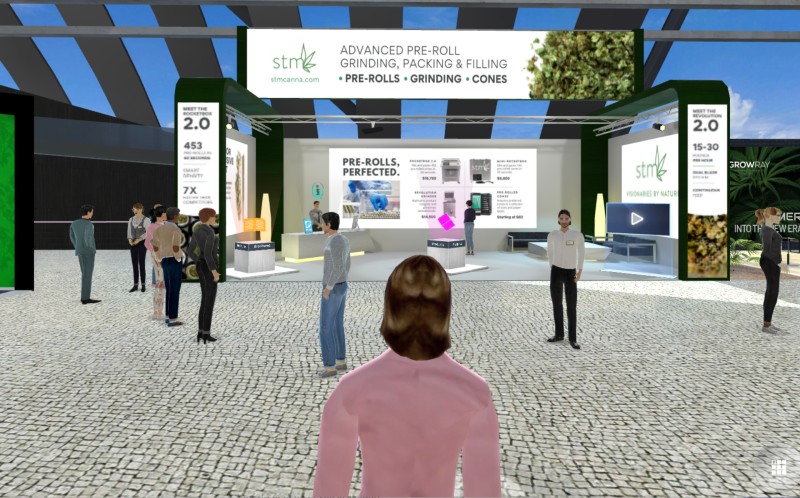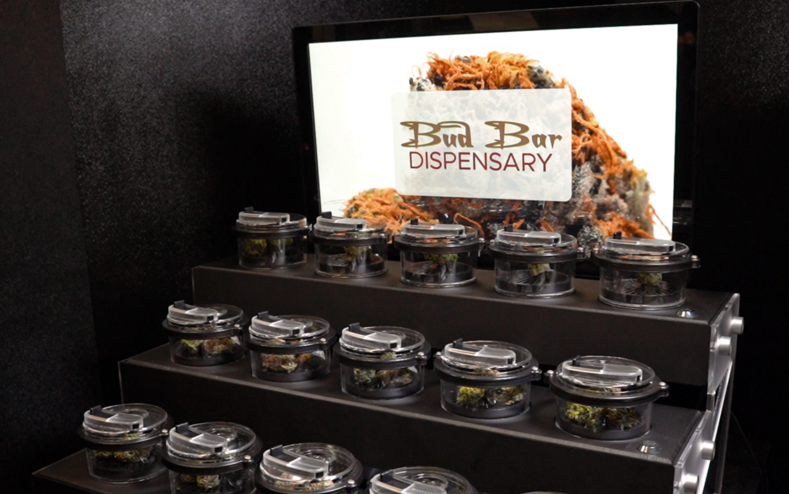This year, 49% of B2B marketers are replacing live events with webinars in response to the pandemic, according to data analytics company Statista.
It’s not a pivot that’s been easy to do.
Most event planners are focused on customer experience, lining up all-star speakers, and hosting in the best possible location for their demographics.
If one had to choose between attending a conference in Burlington, Vermont or Las Vegas, Nevada, most would be inclined to choose Las Vegas because of it’s relatively centralized geographic location, affordable air fares, and abundance of after-hour activities.
Platforms Are the New Location
Now that event location is irrelevant, the focus has shifted to which platform will offer the most engaging experience and the highest return on investment for both attendees and exhibitors.
In an interview with Cannabis & Tech Today, CEO of the Cannabis Science Conference Josh Crossney shared that as he’s had to rethink their event strategy for 2020.
He’s been considering a shift to digital, at least temporarily.
“What I’ve been doing the past couple weeks is really just shopping different platforms. They’re all so different and range in the capabilities they provide,” noted Crossney.
Choosing an Event Tech Provider
The differences in platforms are vast.
According to EventMB, a data research company specializing in events, 42% of virtual event tech providers have been operating for less than a year.
This translates to some notable differences in the technology and user experience of each platform.
Some of these are, in many ways, a Zoom portal — offering speakers the opportunity to present or answer questions, but little else.
Some go a step further and offer monetizable video-on-demand content after the event has taken place, bringing in additional revenue for event planners while adding value for attendees.
Monetizing digital events has proven difficult.
Nearly 25% of virtual event platforms don’t offer analytics for proving a return on investment for sponsors, according to EventMB’s analysis of 94 virtual event tech providers.
Engagement
Still other platforms are more complex, offering attendees a virtual domain where they can interact as avatars, reminiscent of the popular Sims games.
Those platforms offer a level of engagement and gamification not typically associated with Zoom-based event models.
Not surprisingly, engagement has been particularly challenging for virtual platforms.
Many event tech providers rely on live polls and surveys to facilitate audience participation, with only 52% able to gamify the experience in some way, noted EventMB in their analysis.
Networking
Arguably, the most important facet of a successful event is the relationships that develop as a result.
As Crossney noted, “I feel like you get the best networking done when you’re in person, but we’re in these strange times. You have to adapt to stay relevant and in front of your audience while giving customers and vendors a chance to stay in front of your audience.”
Many digital event platforms offer a way for attendees to connect, such as group chat rooms, 1-on-1 meeting capabilities, and even private video chat.
Fewer than 30% of respondents to EventMB’s studies cited having a reception area for attendees to congregate
and interact.
Trade shows had become so ubiquitous in the cannabis space that it was easy to take them for granted, as well as the connections they afforded the companies who frequent them.
As Crossney recalled, “You could go to a cannabis conference every day of the year and still miss them. I traveled three to four times a month on a regular basis, and right before all of this, I was starting to… not get burned out, but I missed my dog, my family, my bed… so I was a little over all the travel.”
But, like most of us, he was quick to note his longing for those connections now that they’re unavailable.
“Be careful what you wish for, because I miss being out there, going to conferences, seeing friends and giving big hugs. A lot of my colleagues in this industry have become some of my closest friends.”
While most virtual events don’t have a “Give a big hug” option, they do offer ways to see one another’s face, chat, and learn something new in the process.
Many events offer live demos, video conferencing, and exhibitor halls to facilitate some of those opportunities for connecting.
A Marriage Made in Convenience
At some point, in-person events will make a comeback.
At this stage of technological development, until we’re all wearing Google Glass and using scratch-n-sniff televisions, in-person events have a definite edge over virtual productions.
People want to shake hands and pick up monogrammed swag, but it would be foolish to think digital events will disappear when the in-person industry rebounds.
Many will still want a virtual option, whether they’re immunocompromised, living in a remote location, or just eager to sleep in their own bed, the digitization of interactions is here to stay.
Exploring New Territory
Cannabis & Tech Today is a new entrant into the event space.
We haven’t had the luxury of years of experience uniting our audience through conferences or expos.
What we have instead is access to cutting-edge technologies.
For the Emerge Virtual Cannabis Conference & Expo, our publication vetted a long list of potential virtual event tech platforms.
The one that stood out was Hyperfair.
It’s immersive, pulling attendees into a virtual world where their avatars can stroll around a game-like expo hall.
Participants wander from booth to booth, collecting virtual swag that translates to real prizes, and popping in and out of auditoriums.
Whether attendees are taking part in a Q&A with industry leaders or discussing strains with a fellow cannabis connoisseur, the platform’s six floors of virtual experiences encourage active participation.
For sponsors and exhibitors, 3D-product renderings give customers another reason to visit customized booths.
Plus, Hyperfair measures behavioral analytics, turning every interaction into actionable intelligence.
This platform has never been used in the cannabis industry.
It’s a risk for our publication, setting off into new territory with emerging technology, but that idea resonates with our core themes — cannabis and technology.
The cannabis space is still developing, and from a federal perspective, it’s still a risky venture.
Similarly, technology is often frightening, overwhelming, or frustrating — until one day it’s so ingrained that you can’t imagine life without it.
At Cannabis & Tech Today, we don’t know what the future of virtual events looks like, but we’re excited to emerge into a more connected future, together.
Author
-
Ebby Stone is a freelance writer specializing in cannabis, with a focus on the innovators and businesses shaping the industry.






